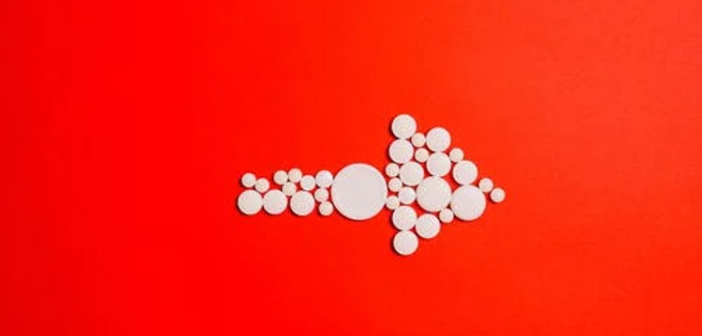Many people associate liver damage with chronic alcohol abuse, but it turns out that a whole host of other substances are also responsible for liver damage.
There are over 1000 drugs and medicines which can damage the liver as a side effect. What are they, and can this be treated?
The key to preventing liver disease from substance use or abuse is early intervention, according to Paul Spanjar of the Providence Projects. Paul runs an addiction treatment centre in Dorset, UK, which has been treating substance abuse problems for over 25 years. Since the pandemic, Paul has noticed an increase in enquiries relating to ketamine, a substance that is known for causing issues with the liver when abused.
What Does the Liver Do?
The liver is one of the most vital organs in the human body. It regulates chemical levels in the blood in several ways. It helps remove toxins from the bloodstream, as well as absorb nutrients from digested food.
Because the liver breaks down the food and drink we consume, as well as any drugs or poisons, it is crucial to be mindful of what we put in our bodies. Consumption of toxic materials could impair the liver’s function.
The liver does more than just process what we eat and drink. The liver is also a key player in our immune system. The liver helps fight infections by releasing macrophages, which attack and destroy invading bacteria. Over half of all our macrophages are stored in the liver. If our liver becomes damaged in any way, this can impair our ability to fight off infections.
The liver performs many other functions, such as:
- storing excess glucose as glycogen
- producing cholesterol and other fat-carrying proteins
- regulating blood clots
- maintaining the level of amino acids in our blood
- producing bile, which helps remove waste
Drug-Induced Liver Injury
With so many critical functions, any damage or disruption to the liver can have serious effects. Certain medicines and pharmaceutical drugs can contain toxins, which are left behind as they are processed by the liver. Damage to the liver as a result of toxins within drugs is known as drug-induced liver injury (DILI).
There are two key types of DILI, intrinsic and idiosyncratic.
Intrinsic DILI is where the damage is related to the dosage. This can be more easily measured, and therefore avoided. The latency period is also relatively short. This means the time between taking the drug and experiencing symptoms is shorter.
Idiosyncratic DILI tends to be more complex. In these cases, individual risk factors take precedence over the drug’s dosage or toxicity. The latency period is also much longer. Symptoms might not appear for one or two weeks after taking the drug. These factors combine to make idiosyncratic drug-induced liver injury much more difficult to control.
What Are the Symptoms of DILI?
According to the British Society of Gastroenterology, approximately 7-15% of cases of acute liver failure can be attributed to DILI. With such high risks, it is important to be able to spot the warning signs as soon as possible. Many of the symptoms are similar to other liver diseases, such as hepatitis, although some people have more obvious hypersensitivities.
One of the easiest symptoms to spot is jaundice. Jaundice is when the skin and eyes of a person turn yellow. It is caused by an accumulation of excess bilirubin in the cells. Bilirubin is a bile pigment which is usually filtered out by the liver.
There are other warning signs that a person may be suffering from drug-induced liver injury. Further symptoms include:
- abdominal pain
- nausea
- dark coloured urine and stools
- itchy skin
- fever and rash (in some cases of people with hypersensitivities)
Which Drugs Cause DILI?
The ability of a drug to damage the liver, known as its hepatotoxicity, is well documented. There is even a database run by the National Institute of Diabetes and Digestive and Kidney Diseases (NIDDK), called Livertox. Here you can search for a specific drug or herbal supplement to learn more about its effects on the liver.
One of the most studied hepatotoxic drugs is acetaminophen (paracetamol). While it is safe to use as a medicine, in some cases a person with hypersensitivity may experience severe reactions. These include Stevens-Johnson syndrome (SJS) and toxic epidermal necrolysis (TEN). These are very serious health conditions but are also rare.
The more likely form of hepatotoxicity from paracetamol use arises from overdoses, usually a suicide attempt. A dose of over 7.5 grams, usually over 15 grams, can lead to DILI within a few days.
The range of drugs that can cause liver damage is very broad, from certain antibiotics to chemotherapy drugs. In fact, over 45% of cases of intrinsic DILI in the US are caused by antibiotics.
Many herbal and dietary supplements are also implicated in DILI. Due to being classed differently from pharmaceutical drugs, herbal supplements are far less strictly regulated. In many cases, supplements like green tea extract or Germander are involved in cases of intrinsic DILI. Several other risk factors, such as pregnancy, also played a part. Simply stopping the supplement consumption was usually enough to reverse symptoms. However, it is very hard to diagnose these types of cases as symptoms may not show for a long time, and the exact contents of the supplement are likely unknown.
There are, of course, many narcotics that cause liver damage, such as cocaine. A cocaine overdose can even lead to acute hepatic necrosis. Narcotics like cocaine and alcohol are good examples of intrinsic DILI, in that taking them at high doses will almost always cause some damage to the liver.
Treatment for DILI
Immediate treatment for DILI is likely to involve stopping taking the suspected drug. This will give doctors the ability to check if it is indeed responsible.
Sometimes it may be necessary to remove the drug from the system immediately. Two compounds specifically are used: N-acetyl-cysteine (NAC) and L-carnitine. Each helps remove a different type of toxicity but both can be helpful in cleaning out hepatotoxicity.
If these two measures don’t work, doctors can also recommend glucocorticoid therapy. This is a kind of steroid that can help in cases of autoimmune hepatitis. In the most severe cases of drug-induced liver injury, a complete liver transplant may be needed.
Understanding the effects and contents of any drugs or supplements before taking them is key to preventing DILI.




